Attention A T users. To access the menus on this page please perform the following steps.
1. Please switch auto forms mode to off.
2. Hit enter to expand a main menu option (Health, Benefits, etc).
3. To enter and activate the submenu links, hit the down arrow.
You will now be able to tab or arrow up or down through the submenu options to access/activate the submenu links.
Locator
Contact
Search
Education > Education Resources >Brochures
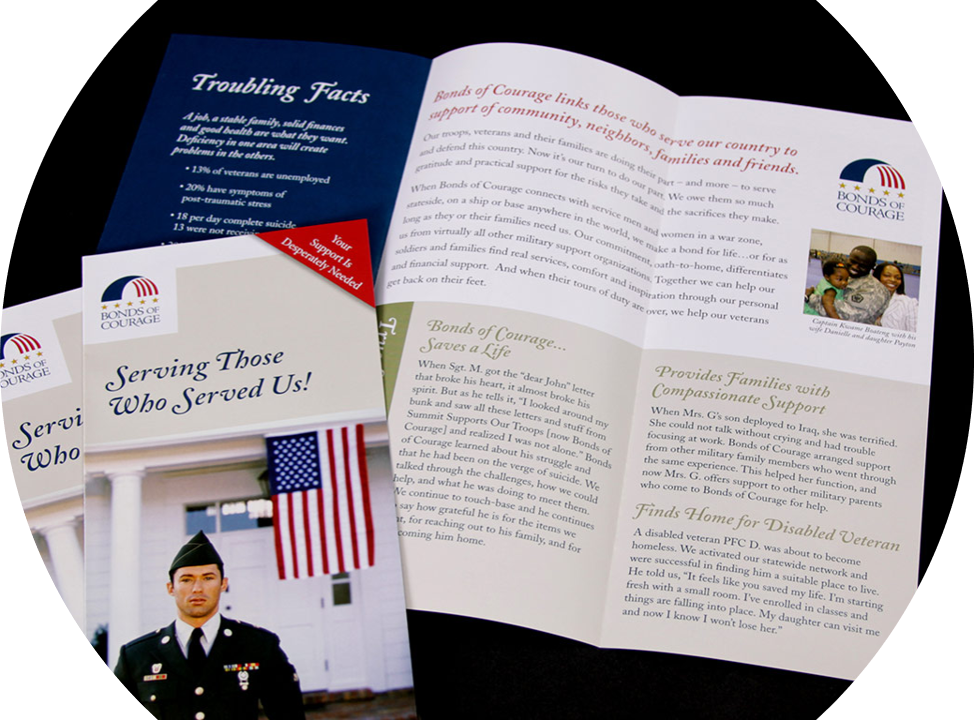
Brochures and Workbooks for Veterans and Providers
These short pamphlets and handouts summarize the important aspects of post-deployment mental health. Dr. Robin Hurley, Associate Director, Education; Dr. Katherine Taber, Assistant Director, Education (Retired) and Dr. Wilfredo López-Ojeda, Assistant Director, Education (Current) are the main contributing authors for these materials. They are intended to provide information to guide Veterans and their families through their readjustment challenges and difficult coping processesNOTE: This webpage is currently under revision. Many links will not work at this time. Please be patient while we complete this process.
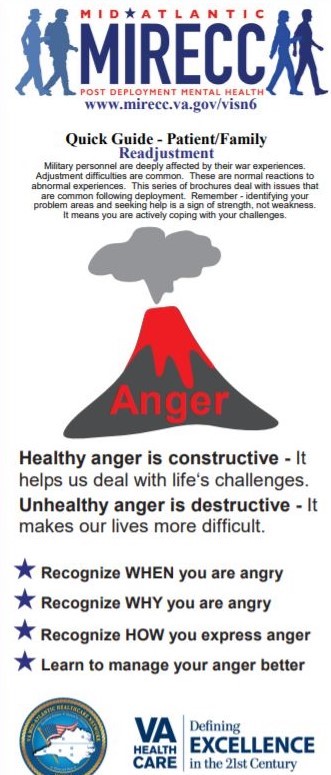 |
Anger Feeling angry is not usually the problem. Problems come from the way anger is expressed or not expressed. You can’t always avoid or change the things that anger you, but you CAN learn to control and manage your reactions. |
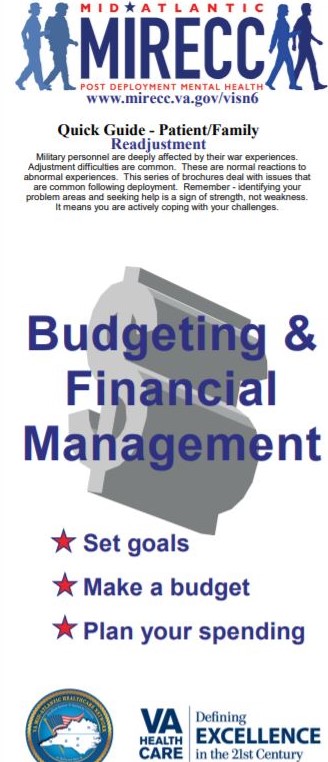 |
Budgeting & Financial Management Do you find that your money runs out before the month does? The less money you have to live on, the greater your need to budget. The purpose of having a budget is to make the best use of your resources. Learning how to budget is a major step to control spending. It can be hard to learn, but it‘s a skill worth mastering. Here are some tips on how to begin. The first step in creating a budget is to figure out where your money is going. |
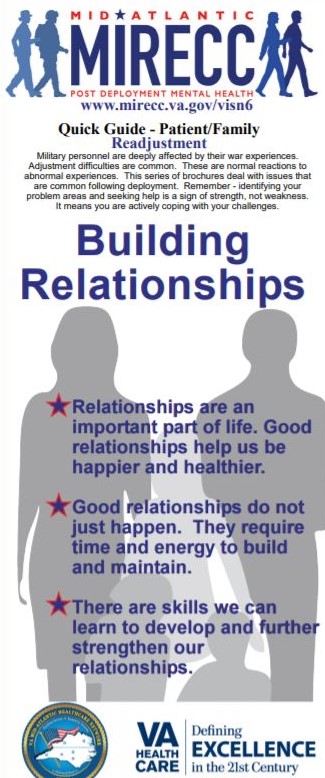 |
Building Relationships Take time to communicate and reconnect with your family and friends. Plan family time to help bring everyone back together. Make time for just you and your partner. Plan some special time for you and each of your children to get reacquainted. Focus on successes and limit criticism. |
 |
Developing a Theological Response for Returning Combat Veterans Returning home is disorienting and can represent a significant change of and perhaps an absence of social community, structure, order, mission, purpose and predictability for the returning service member. The enormity of the war experience can shatter the individual’s basic sense of safety and basic understanding of the meaning of life as they knew it. In addition, the returning soldier’s family are not the same as they were before deployment to war. Re-adjustment and “re-setting” after the crisis of trauma can be complicated and difficult. |
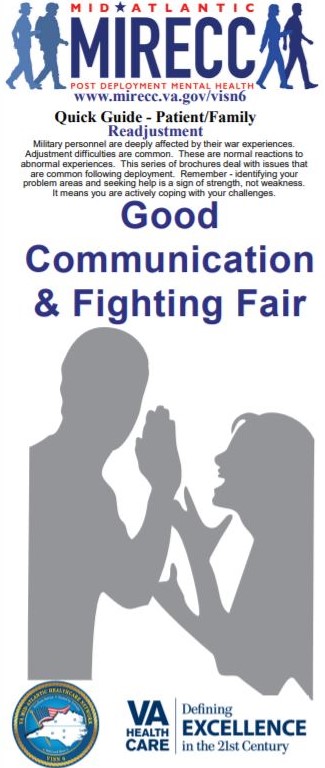 |
Good Communication & Fighting Fair Having good communication and fighting fair is essential in maintaining a healthy relationship. Some tips in this brochure will help you and your family become good communicators and allow a positive environment to present arguments sensibly without hurting each other. |
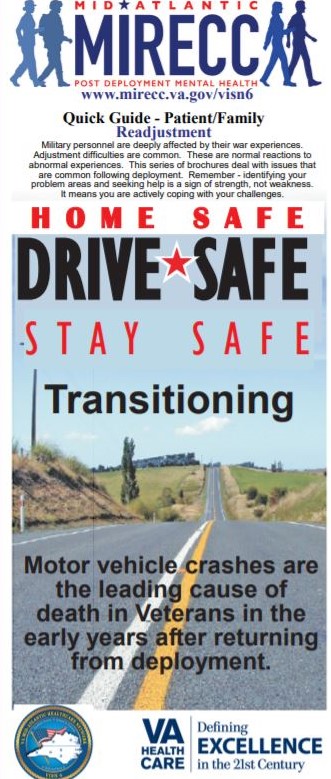 |
Home Safe, Drive Safe, Stay Safe Motor vehicle crashes are the leading cause of death in Veterans in the early years after returning from deployment. Reduce the threat by focusing on the differences between combat and home. Become a safe driver again while transitioning and put an emphasis on defensive driving. |
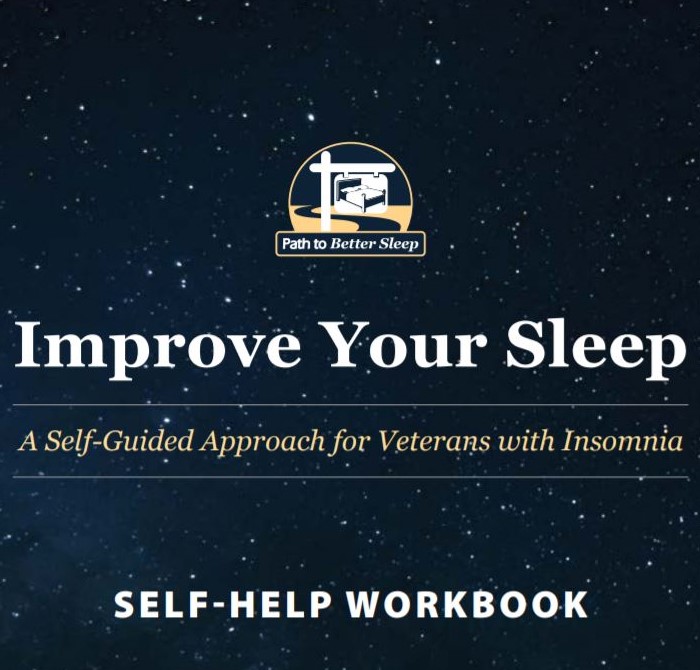 |
Improve Your Sleep: A Self-Guided Approached for Veterans with Insomnia (V2) The purpose of this workbook is to help Veterans who have insomnia. You may have insomnia if you have difficulty falling and/or staying asleep, that has lasted for at least three months and causes you problems during the day. The VA is committed to helping Veterans with insomnia. We offer Veterans a range of treatment options for addressing insomnia. |
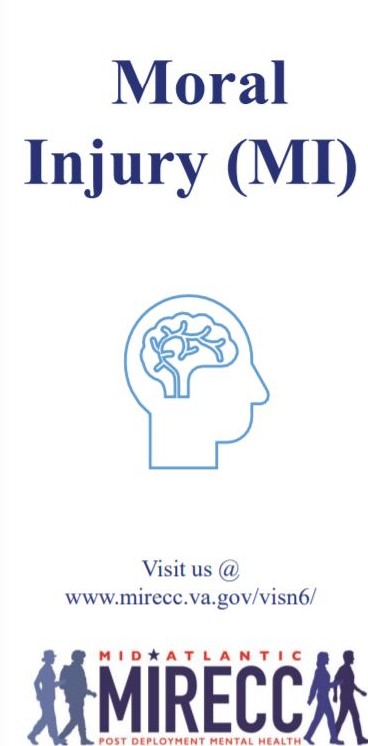 |
Moral Injury Military personnel are affected by their war experiences. Adjustment problems are common and are normal reactions to negative or bad experiences. This brochure deals with moral injury issues that are common following deployment. Remember - identifying your problem areas and seeking help is a sign of strength, not weakness. It means you are actively coping with your challenges. |
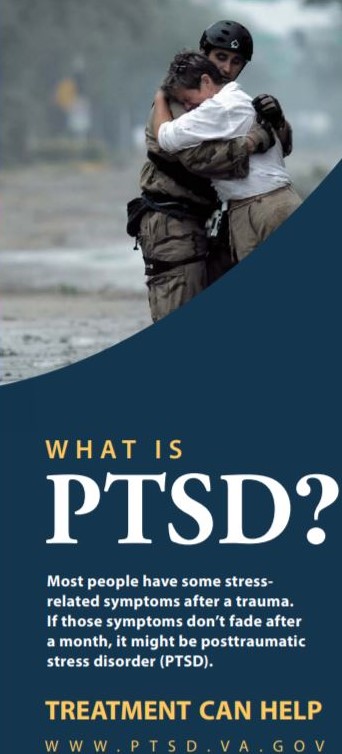 |
Posttraumatic Stress Disorder (PTSD) Most people have some stress related symptoms after a trauma. If those symptoms don’t fade after a month, it might be posttraumatic stress disorder (PTSD). Treatments for PTSD include psychotherapy (counseling) and medication. Sometimes, the two are used together. Cognitive behavioral therapy (CBT) is the best treatment for PTSD. There are different types of CBT, including Cognitive Processing Therapy and Prolonged Exposure. |
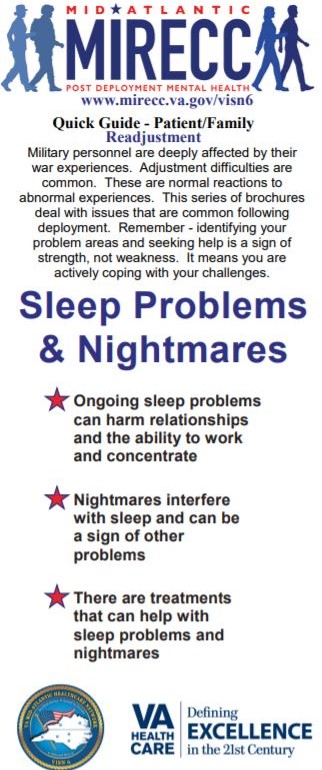 |
Sleep Problems & Nightmares It is not unusual to have nightmares during times of stress. For combat veterans, these nightmares may include combat scenes. If you have frequent and distressing nightmares, please talk to your medical or mental health provider. Frequent nightmares may be a sign of a more serious problem. This brochure provides tips for coping with Sleep Problems and Nightmares. |
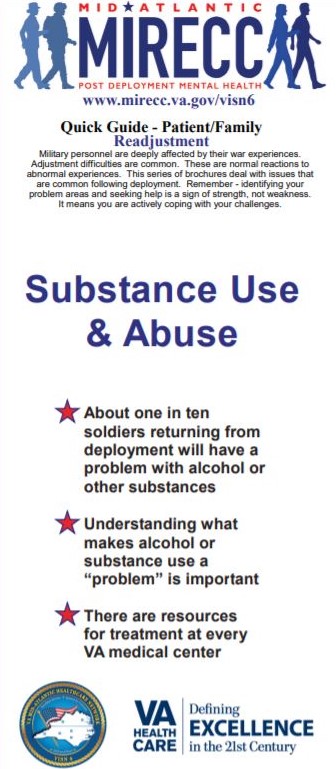 |
Substance Use & Abuse If you think you have a problem with alcohol or drugs, this brochure provides the following suggestions from the National Institute on Alcohol Abuse and Alcoholism that may help as you work with your health care team to find the best treatment for you. |
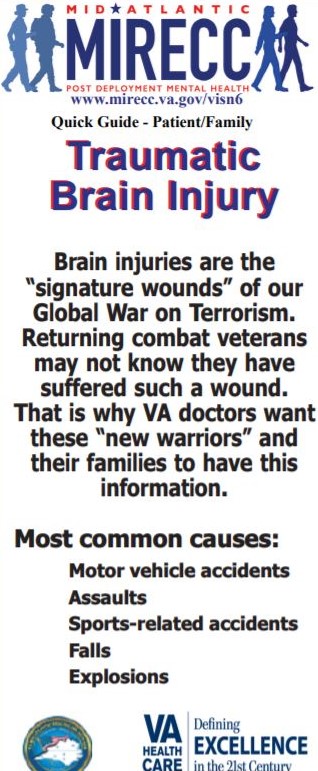 |
Traumatic Brain Injury Some symptoms may be present immediately. Others may appear much later. People experience brain injuries differently. Speed of recovery varies from person to person. Most people with mild injuries recover fully, but it can take time. In general, recovery is slower in older persons. People with a previous brain injury may find that it takes longer to recover from their current injury. Some symptoms can last for days, weeks, or longer. |



















